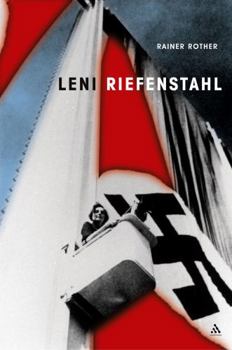Leni Riefenstahl: The Seduction of Genius
Select Format
Select Condition 
Book Overview
Leni Riefenstahl achieved fame as a dancer, actress, photographer, and director, but her entire career is colored by her association with the Nazi party. Appointed by Hitler, she directed the Nazi propaganda film Triumph des Willens along with her best-known work Olympia, a documentary of the 1936 Berlin Olympics. By 1939 Riefenstahl was arguably the most famous woman film director in the world; yet, after World War II, she was never again accepted as a filmmaker.Rainer Rother's book provides detailed coverage, from original documentation, of those aspects of Riefenstahl's career she herself has attempted to sanitize. It is a remarkable account of the fascinating life and work of Germany's most controversial photographer and filmmaker.Leni Riefenstahl, one hundred years old in 2002, is one of the most important and controversial filmmakers of the twentieth century. This powerful translation of Rainer Rother's acclaimed exploration of her life focuses both on Riefenstahl the woman and Riefenstahl the director. Although admired by such greats as Walt Disney, Charlie Chaplin, and Andy Warhol, Riefenstahl's achievements are clouded by her association with Nazi Germany and the Third Reich. This overt tension between the political meaning of her work for National Socialism and its essential aesthetic quality forms the basis of this compelling account.
Format:Paperback
Language:English
ISBN:0826470238
ISBN13:9780826470232
Release Date:October 2003
Publisher:Continuum
Length:288 Pages
Weight:1.20 lbs.
Dimensions:0.9" x 6.0" x 8.9"
Customer Reviews
2 ratings
Great monography on German Enfant Terrible
Published by Thriftbooks.com User , 16 years ago
Leni Riefenstahl was an important film maker with a strong will. At the same time she was a person who admired Adolf Hitler and never distanced herself from the nazi-period in a serious way. Not because she was a nazi, because she wasn't, but because here view on life was that Leni could not have been wrong. After the war, through the years she insulted war victims more than once, not out of viciousness, but out of an insensibility that borders on stupidity. Would she have been prepared to look seriously into her own past, everyone would have forgiven her for her mistakes during the Hitler-period. Rainer Rother is a first class German film scholar who obviously made a meticulous study of the work of and the documents on Leni Riefenstahl. His book is not a biography but an essay in which he concentrates on the main issues concerning her life and work. He looks at her positive en negative sides in an understanding and balanced way.
leni's refusal to admit guilt was off-putting
Published by Thriftbooks.com User , 19 years ago
im not sure what the other reviewer is talking about. i thought this to be the most even-handed assessment of riefenstahl that i've yet read. not only that, but rother addresses most other commentaries on reifenstahl, so that this work can work also as a sort of bibliography for those who wish to read further. rother pretty much says that riefenstahl got a raw deal compared to other propaganda directors (mr. jud suess), but that she still deserved much of what she got. essentially (and, no, i don't view this as a "plot-spoiler"), says rother, riefenstahl was apolitical but still guilty (or, perhaps, guilty because she was too apolitical, that is, ambivilant enough to let the nazis use her (and i use the word "use" here loosely)). of course, rother goes much deeper into this, even broaching (but not always delving into) such topics as: is objectivity possible in documentary?, was leni an auteur, and thus not responsible for her artistic portrayals of nazis? please understand that i'm rating this a 4, as in, this is four stars for books of this type, as opposed to, this is 4 stars in general for all categories. also, im trying to cancel out the other reviewer who must be some kind of uber leni fan.






